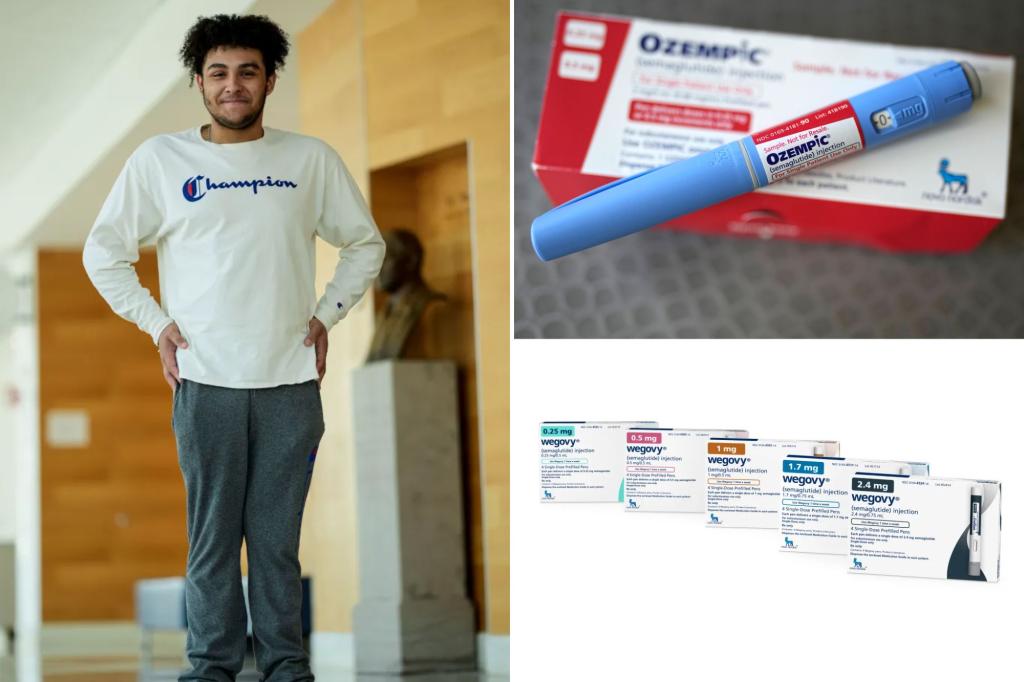Israel McKenzie, a teenager from rural Tennessee, struggled with obesity, which led him to stop attending high school in person and feel embarrassed at his restaurant job. Despite multiple attempts to diet and exercise, his weight reached 335 pounds on his 6-foot-1 frame, causing him to lose hope. However, last year, McKenzie started using the weight-loss drug Wegovy, which helped him shed 110 pounds in nine months, making him part of a growing number of adolescents and young adults using GLP-1 receptor agonists for diabetes and obesity.
While there is already high demand for drugs like Ozempic and Wegovy among older adults, the use of these medications in young people aged 12 to 25 has seen a significant increase. According to a study published in the journal JAMA, data from 2020 to 2023 showed a surge in monthly use of GLP-1 drugs in this age group. The report revealed that nearly 31,000 children ages 12 to 17 and over 162,000 individuals ages 18 to 25 used these medications in 2023, indicating a growing trend.
The increase in the number of young people using GLP-1 drugs suggests that healthcare providers are exploring more treatment options for this population. The research showed that the monthly use of any GLP-1 drug by those aged 12 to 25 rose from about 8,700 in 2020 to over 60,000 in 2023, a 600% increase. This rise occurred while prescriptions for other medications in the same age group decreased by around 3%.
Despite the growing use of GLP-1 drugs in young people, only a fraction of those struggling with obesity have received these medications. The U.S. Centers for Disease Control and Prevention reports that approximately 20% of children and adolescents and 42% of adults in the United States have obesity. Early in 2023, the American Academy of Pediatrics recommended aggressive treatment for children and teens with obesity, including using surgery and medication, if deemed necessary.
Israel McKenzie shared his experience of gaining weight during puberty and using food as a coping mechanism, leading to worsening asthma and potential diabetes risks. After failing to see results from diet and exercise, McKenzie sought help from a pediatric obesity specialist who prescribed Wegovy, an FDA-approved weight-loss drug for children over 12. Despite concerns about side effects such as nausea and vomiting, the medication helped McKenzie lose weight and boost his self-confidence.
The use of GLP-1 drugs in young people raises concerns about long-term safety, effectiveness, and accessibility of these medications. While they are meant for ongoing use, there is a need to monitor their impact on younger populations. Additionally, the high cost and insurance coverage challenges can hinder access to these drugs. The research found that government-run Medicaid plans covered a significant portion of GLP-1 drugs prescribed to adolescents and young adults, highlighting disparities in access to these treatments. Despite these challenges, success stories like Israel McKenzie’s demonstrate the potential benefits of using weight-loss medications in young people to improve their overall health and well-being.


